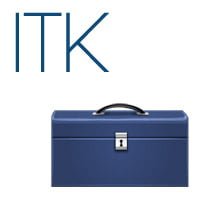Staffs trust first on spine mini-service
- 16 January 2012

University Hospital of North Staffordshire NHS Trust has become the first to go live with a ‘spine mini-service’ accredited under NHS Connecting for Health’s interoperability toolkit.
The trust has implemented Quicksilva’s new orQestra service to enable direct, automatic access to the personal demographic service held on the NHS data spine.
Staff can now verify NHS Numbers while patients are on site, which saves time, makes it easier to obtain reimbursement from commissioners, and avoids potential penalties for holding inaccurate data.
The company hopes it will now act as a blueprint for other trusts that want to access the Personal Demographics Service, without going through the existing and lengthy NHS compliance processes.
The trust previously relied on the DBS Batch Tracing process to validate patient information against the PDS. This was only done on a weekly basis.
The trust’s deputy head of ICT, Rebecca Gallimore, told eHealth Insider that was a very “retrospective” process and was not providing the trust with the information it required.
She added that the trust had been doing a lot of follow-up work after submitting commissioning data, because of incompatible PDS data.
Although the trust did some work to try and find out where the discrepancies were coming from, they were impossible to deal with without direct access to the spine.
“Our move is to give access to the entire trust’s data to the whole health economy,” Gallimore said. “We want to be providing the right information to the GPs and ensuring that the GP we are providing it to is the right one.”
The orQestra spine mini service acts as a stepping stone between trust applications and the spine and has been accredited as compliant with CfH’s latest release of the ITK.
A ‘mini-service’ is an intermediary system to link trust applications with the Spine, which other systems can then plug into.
CfH and interested vendors argue that this is a much faster and more cost effective system than the previous compliance process, because it eradicates the need for each individual application link-up to be approved.
Managing director of Quicksilva, Gayna Hart, said being cost effective was particularly important in the current NHS climate. “The upheaval and cost of putting a complete new system into a trust is huge.
“There’s not a lot of money sloshing about in the NHS at the moment, so being able to plug disparate systems in brings quite a significant return on investment.”
Quicksilva is the first company to achieve ITK accreditation for a spine mini-service, and to have it running live in a trust.
A pilot was launched at North Staffordshire in December, and progressed onto the next implementation phase without any issues.
The next stage will be to link the system up with the trust’s iPM patient administration system, to enable a bi-directional flow of information.
Currently patient details are only updated when they are touched on the back-end database.
However, the integration with iPM should mean that the details are automatically updated whenever a patient entry is touched in the patient administration system.
The trust says that once the integration with iPM is complete, it will also enable other systems that are integrated with the PAS to also be updated automatically.




